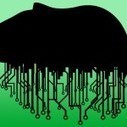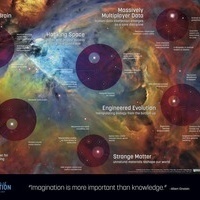Filmmaker and futurist Jason Silva explains his belief in the self-reinforcing power of optimism.
Research and publish the best content.
Get Started for FREE
Sign up with Facebook Sign up with X
I don't have a Facebook or a X account
Already have an account: Login

 Your new post is loading... Your new post is loading...
 Your new post is loading... Your new post is loading...

Sakis Koukouvis's comment,
October 14, 2011 3:08 AM
Yes it seems an ideal job ;-)
The time testifies everything! |
|















